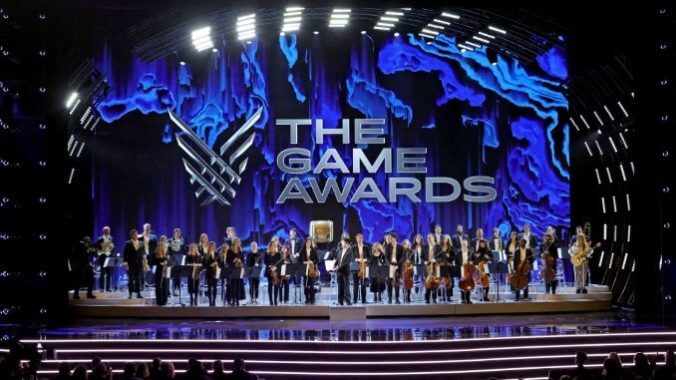The Game Awards Are Still a Total Fraud
Photo courtesy of Getty
I’m going to make this quick. We’ve never written about or acknowledged The Game Awards here at Paste because The Game Awards aren’t important. They don’t mean anything and nobody takes them seriously. Their audience seems to be made up entirely of hate-watchers, who could just wait a couple of hours and watch the only thing they’re actually interested in—the game trailers—once they’re up on YouTube. Every major entertainment industry awards show is ultimately about marketing, but none are as brazen and single-minded about it as The Game Awards. They’re purely a marketing campaign, focused on advertising upcoming games with no interest in actually celebrating or acknowledging the art of game design; the awards themselves are afterthoughts often given out off-camera, and through the games they nominate and reward The Game Awards reinforce many of the most regressive and worst gatekeeping aspects of the games industry. They continue to prop up an arbitrary distinction between corporate and independent games while always prioritizing the former, and they almost never address or criticize the many deep-rooted problems that keep this industry and this medium from reaching their true potential, from the exploitation of overworked and underpaid workers forced to crunch endlessly before being laid off without warning, to the continued focus on puerile power fantasies that appeal to a limited (but very loud) demographic. Everybody complains about The Game Awards, nobody respects The Game Awards, and yet every year everybody who works in or writes about the games business has to spend the first week of December acting as if anybody actually cares about The Game Awards. Nobody does. The Game Awards are a fraud. I already regret spilling so many words about something that doesn’t deserve any attention at all.
The latest example of The Game Awards’ sheer uselessness: in late November several dozen recipients of The Game Awards’ Future Class honor—a recognition bestowed to 50 game designers, artists, journalists, academics, and streamers every year—demanded that this year’s show and its organizers officially recognize the tragedy happening in Gaza. Future Class members issued an open letter asking for the show to include a statement in their name calling for a ceasefire and for the human rights of Palestinians to be recognized and protected. That letter has since been signed by 79 Future Class recipients, along with almost 3000 additional people, including many game designers and journalists.